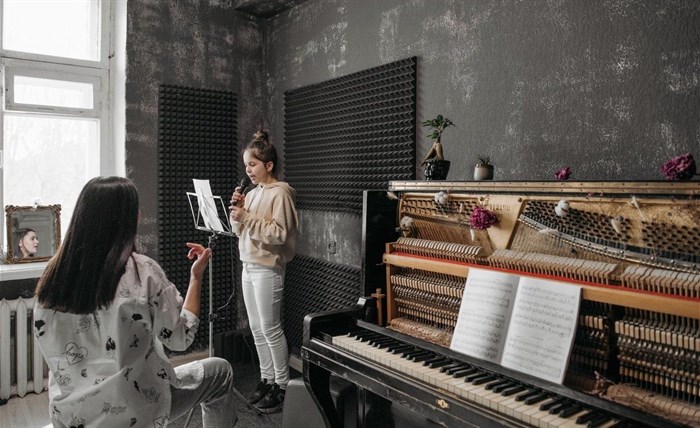Music education in schools could equip learners with the skills they will need in the 21st century workplace, a new study conducted by Stellenbosch University (SU) has revealed.

Source: Pavel Danilyuk from
Pexels“The workplace of the future will be unpredictable, changeable, and will require a level of adaptability, creativity, and innovation that today’s job market is only beginning to necessitate. By critically engaging with music that learners enjoy and allowing them to create music, we can develop these and other key competencies,” says Johannesburg-based music teacher Dr Angie Mullins who recently obtained her doctorate in Music at SU.
She adds that it is important for today’s learners to have the right skills for the future because research has shown that by 2030, about two billion jobs could be something of the past due to automation in the workplace.
Research techniques
As part of her study, Mullins used pedagogical techniques such as project-based learning, inquiry-based learning, gamification (use of game-design elements and game principles), and blended learning. She says these tools are underutilised in the music classroom and have enormous benefits.
Learners in her Grade 7 classroom participated in the research by completing self-assessments after each lesson and also taking part in focus group discussions about the most effective teaching methods, the competencies they felt they had developed the most through music, and whether or not in-class feedback and guidance was helpful.
Mullins says the learners built an electrophone (a musical instrument that generates sound through electrical current) when studying musical instruments. They had to design an entirely unique instrument, and build it out of various materials, wire it using an Arduino board, programme the sounds their instruments would make, and then write the code that triggered the sounds.
They also participated in mock trials about real-life copyright infringement court cases where they were assigned a side in the case and then had to find musical evidence to support their arguments for or against a copyright claim.
Each learner also learnt to play a musical instrument during the course of the year through a flipped classroom*, and played together in an ensemble originally lead by Mullins, but later self-directed by the learners.
Skills development
“I found that music education can help to develop key competencies in learners. It can help to develop and improve analytical skills (e.g. critical thinking, problem solving, decision making); interpersonal skills (e.g. communication, collaboration, negotiation); the ability to execute tasks (self-direction, productivity, perseverance); processing of information (e.g. information & media literacy, safe and responsible use of technology); and the capacity for change (e.g. creativity, innovation, flexibility and adaptability). The most significant development took place in the Capacity for Change and Interpersonal Skills competency areas.
“Learning to play a musical instrument in a self-directed setting was particularly effective in developing multiple competencies. Providing learners with opportunities to engage in long-term group projects and work that demands creativity and innovation is also key to effective competency development.
“The self-assessments that they completed after each lesson were not only an effective tool in tracking the perceptions of their progress, but also developed their metacognitive (thinking about strategies to perform a task) competencies.”
Transferrable competencies
Mullins says the feedback from learners shows that music can contribute to their overall education, and that the competencies acquired in the music classroom could be transferred to other subjects like languages and mathematics.
“Teenagers rely on music as a strong informing factor in their identity construction, and it is a highly subjective, nuanced medium that promotes creativity, collaboration and debate. They engage with music daily, whether through a choir or instrumental lessons, or by passive listening to radio, television, or video games.”
Mullins says a first step in implementing a future-focused music curriculum across basic education would be to educate school administrators and policy makers in how important music is within education.
“We don’t need numerous resources to teach music. Even without access to musical instruments, learners can benefit from studying music. By employing creative strategies and forward-thinking pedagogical methods, every learner, even those in the most poorly-resourced schools, could have access to and tap in to the enormous benefits of studying music.”
*A flipped classroom switches the teaching that would usually take place during lesson time and the work that would happen at home – the “talking teacher” happens via video that is watched at home, and the student-centred experimentation takes place in class. This allows the teacher to guide and support the students during their self-driven learning (which would usually take place at home).































